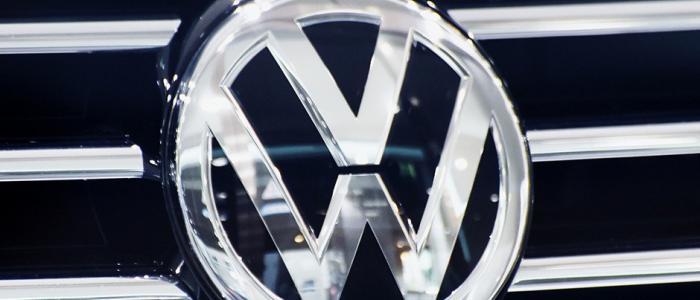Mass complaint against VW
Author: Thanh Duy Tran
Date: 01.10.2019
VZBV advocates for car owners
The negotiations already last for four years. So far, Volkswagen has had to pay 30 billion euros for the scandal. On this Monday, the Braunschweig Higher Regional Court will hear the petition for a declaratory judgement.
What is the sample declaratory action?
The lawsuit is a kind of “Lex Volkswagen”. The federal motor vehicle authority announces that a total of 2.5 million diesel vehicles have been affected. Now, the sample declaratory action is being brought against VW in approximately 449,000 cases on behalf of the Federation of German Consumer Organisations (shortcut VZBV). Even if the car owners with affected second, third or fourth VW diesel engines were not included, hundreds of thousands would still remain affected.
The purpose of the whole is to take a lower risk with more comfort in the lawsuit against the car company. The aim here is a possible claim for damages.
“The new type of procedure is a great opportunity for a large number of injured parties to clarify questions in one procedure,” explains Sebastian Reiling, who is responsible for the model declaratory actions at the VZBV. He continues: “For me, this is also an important access to the law. A lawsuit would claim a lot of money and the lawsuits against VW would thus be “one of the biggest economic scandals in Germany”, says Reiling.
What can the complaint achieve?
Reiling from the VZBV says: “As a result of the recall by the Federal Motor Transport Authority it is clear that Volkswagen cheated. And according to our legal opinion, the damage occurred at the moment a car was purchased.” Nevertheless, the question remains whether the affected engines will actually suffer any damage. That’s why it remains undecided and Volkswagen as well as the consumer protectors will remain on the battle station in the future.
“From our point of view, the customers have not suffered any damage.” Volkswagen insists and believes that affected cars can still be used because the engines are technically safe. In addition, it is still under discussion whether a software update is capable of eliminating a possible damage.
For a long time the Volkswagen drivers were at a disadvantage against the court. But lately there have been exceptions in which the customers have been in the right. This was due to the fact that the Federal Supreme Court pleaded the illegal shutdown system as a material defect. The Frankfurt Higher Regional Court, on the other hand, declared the case to be “intentional immoral damage” and awarded the plaintiff reimbursement of the purchase price.
However, the legal proceedings in Braunschweig will be more comprehensive and tricky than planned. This is the fault of the fourth Civil Senate, which has resigned the objective of the VZBV and insisted that no damages be awarded. This is due to the many different cases. Therefore, a little more time is needed to examine every auxiliary application that the VZBV wants to cover.
A comparison should be considered
It is estimated that the negotiations will take another two years, although the negotiation date has been set for November. It is further advised to start a settlement so that the process will have a shorter duration. VW has already reached a settlement in Australia. The automobile company comments that it is not possible in Germany with the fact that there are too many plaintiffs in the most different variations of the case constellation.
“In the USA, VW has taken back cars on a grand scale, paid into environmental funds in Canada, paid fines and in Germany Volkswagen still takes the view that they did nothing wrong. That is a clear discrepancy,” Reiling of the VZBV assesses the situation.
What are the consequences for those affected?
There are basically three situations that the car owners concerned must expect:
1. In the event of a settlement, the agreements between VW and VZBV would come to light and apply to all consumers involved.
2. If the complaint is successful, consumers must take action themselves and claim damages on the basis of the court’s ruling. Arbitration boards may be set up to determine the amount for the claims or car owners may contact litigation financiers.
3. Should the VZBV lose the case, the consumers involved would also no longer have any claims. The effect would be that they would no longer be able to file suit with other courts.
Better to do it yourself?
It would be the alternative for everyone who has legal expenses insurance to sue alone. The advantage of this is that the “individual lawsuit is at the same time a performance lawsuit, which means that at the end of the proceedings you may also get money directly.” Reiling also mentions the advantages for the class action lawsuit: “The statute of limitations is suspended and the registration in the register is free of charge, we bear the legal costs for it”. It is not yet clear how such a lawsuit will end on a stand-alone basis. This is because there are already some proceedings on the table at the Federal Supreme Court that expect a decision.
VW will be facing a major problem in the future if the number of sample declaratory court cases continues to grow. The more the agenda is filled, the longer the process takes and thus increases the court costs for the company. For this reason, an amount for the use of the vehicle concerned is often deducted by the court. The longer the car is registered, the higher the individual amount. Since the majority of vehicles will only have a small residual value in 2024, the final profit for the consumer will be correspondingly low.
What risk is still given?
So far, the Braunschweig consumer lawsuit has been used for the first time. The sample procedure has already been used against the Mercedes bank in Stuttgart. There a consumer association failed. Braunschweig therefore serves as the stage for the premiere of the new procedural law. “It is a brand-new law and a new type of procedure in which certainly more questions still have to be clarified than with others,” explains VZBV lawyer Reiling. For example, there is still the question of whether foreign VW car owners can be included because there are also a large number of these in the action register.



Comments are closed.